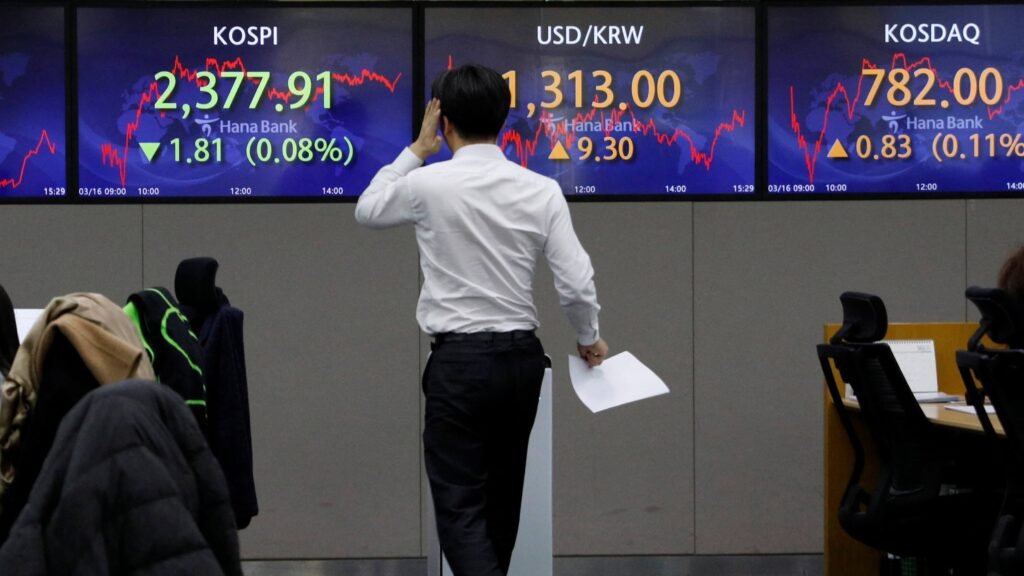South Korea has decided to suspend stock short-selling until June 2024 to provide regulators with the time to enhance rules and systems, according to the Financial Services Commission. Borrowing shares for trading, a crucial aspect of short-selling, will be prohibited for companies listed in the Kospi 200 Index and Kosdaq 150 Index starting Monday and continuing until the end of June.
The Financial Services Commission Chairman, Kim Joo-hyun, emphasized that they had discovered substantial illegal naked short-selling by global investment banks amid market turmoil, leading to further illegal activities that undermine fair price formation and damage market confidence.
In the coming months, South Korea aims to make fundamental improvements to level the playing field for retail investors, narrowing the disparities in short-selling requirements and conditions between institutions and individual investors. Stronger penalties for illegal short-selling activities are also being considered, with a special investigation team being introduced to scrutinize global bank short-selling transactions.

Around 10 global banks, responsible for the majority of short-selling transactions in South Korea, will face investigations. South Korea initially permitted short-selling of stocks on the two indexes in May 2021 while maintaining a pandemic-era ban on over 2,000 equities. Reintroducing the full ban could hinder the country’s efforts to advance to a higher position in a key global index.
Brian Freitas, an analyst at Smartkarma Holdings Pte., expressed concerns that the short-sell ban might jeopardize South Korea’s chances of moving from an Emerging Market to a Developed Market. He also suggested that bubbles may form in segments of the market favored by retail investors when short selling is no longer a check on excessive valuations.
Short selling constitutes a small fraction of South Korea’s $1.7 trillion stock market, accounting for about 0.6% of the Kospi’s market value and 1.6% of the Kosdaq’s, as per exchange data.
This regulatory decision comes ahead of general legislative elections to elect National Assembly members in April. Some ruling party lawmakers have called for a temporary end to stock short-selling in response to demands from retail investors who have protested against the practice, claiming it gives foreign and institutional investors unfair advantages.
South Korean President Yoon Suk Yeol and his party have campaigned on various reforms, including changes to the pension system and the prevention of market monopolies. The regulator’s ban coincides with a nascent recovery in the South Korean equity benchmark index, the Kospi, which has rebounded in November after experiencing its worst monthly drop in October due to foreign selloffs. However, the index remains over 10% below its August peak.
The small-cap Kosdaq Index has also recovered from its lowest level since January but is still down by 17% from its July peak.




